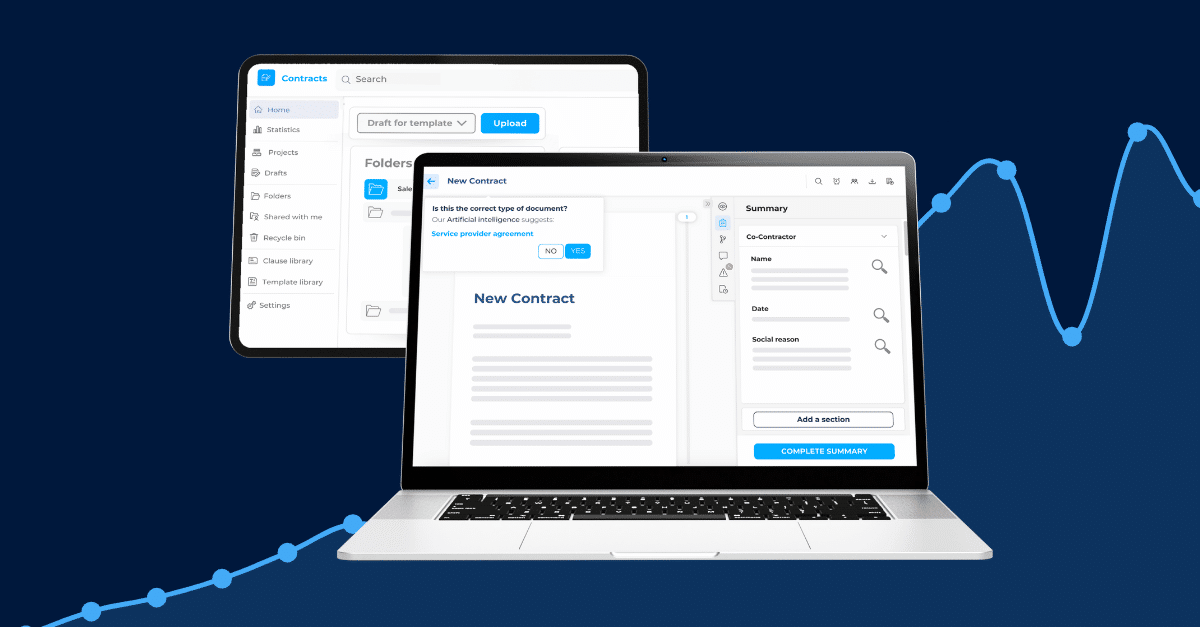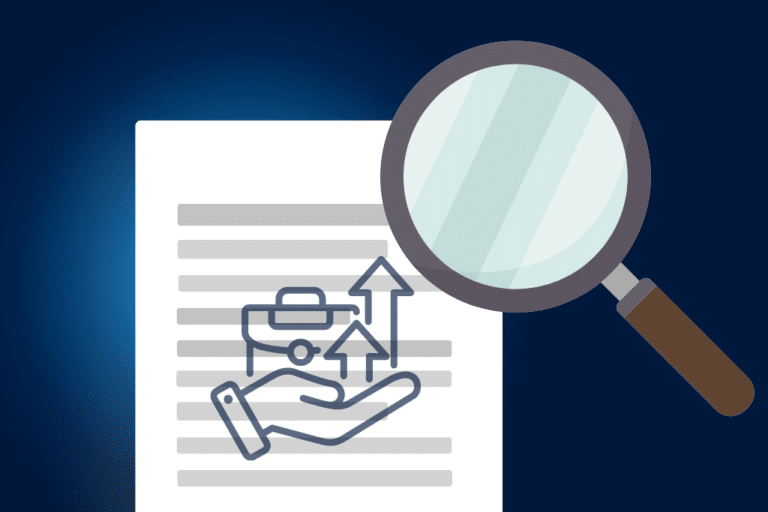Effective contract review safeguards organizations from legal and financial risk by combining structured processes with AI-powered tools that streamline analysis, ensure compliance, and accelerate approvals. Modern solutions like centralized platforms and automated workflows turn contract management into a strategic advantage by improving efficiency, consistency, and oversight.
Amid accelerating business dynamics, contracts remain the cornerstone of effective commercial engagement. Business contract review is a critical process that protects organizations from potential legal and financial risks while ensuring beneficial agreements. According to a study by World Commerce & Contracting, companies lose approximately 9% of their annual revenue due to poor contract management. This guide explores how to establish an effective contract review process and how modern solutions are transforming this essential business function.
The Challenges of Traditional Contract Review
Legal departments across industries face significant hurdles when reviewing contracts using conventional methods. These challenges often lead to inefficiencies and increased risk exposure.
Resource Limitations and Time Constraints
Most legal teams operate with limited resources while facing growing workloads. A typical in-house attorney reviews between 50 and 100 contracts monthly, creating bottlenecks in the approval process. This pressure often forces legal professionals to rush through reviews, potentially missing critical issues.
Inconsistency Across Reviews
Without standardized procedures, different team members might apply varying standards when reviewing agreements. This inconsistency creates uncertainty about whether all important areas receive proper attention during each review.
Version Control Difficulties
Tracking changes across multiple drafts becomes increasingly complex, especially when several parties contribute to negotiations. Traditional email-based reviews frequently result in confusion about which version represents the current state of the agreement.
Key Components of an Effective Contract Review Process
A structured approach to contract review helps businesses identify risks while expediting the approval process. The following components form the backbone of an effective review system.
Initial Risk Assessment
Begin by evaluating the contract’s strategic importance and potential risk level. High-value or high-risk agreements warrant more thorough examination, whereas standard form contracts might require less scrutiny.
Comprehensive Clause Examination
Thoroughly analyze key provisions including:
- Payment terms and financial obligations
- Termination rights and renewal conditions
- Liability limitations and indemnification clauses
Compliance Verification
Ensure the contract adheres to relevant laws and regulations applicable to your industry. This step is particularly important for businesses operating across different jurisdictions or in heavily regulated sectors.
Documentation and Communication
Record all findings, concerns, and recommendations clearly. Effective communication between legal teams and business stakeholders prevents misunderstandings and facilitates faster resolution of issues.
Best Practices for Optimizing Your Contract Review Workflow
Implementing these practices helps streamline the review process while maintaining thoroughness and accuracy.
Develop a Contract Review Checklist
A comprehensive checklist ensures reviewers address all critical areas consistently. This tool is especially valuable when multiple team members handle contract reviews or when training new staff.
Establish Clear Approval Hierarchies
Define who has authority to approve different types of agreements based on risk level, contract value, or subject matter. Clear approval pathways prevent unnecessary delays and confusion.
Create a Centralized Knowledge Repository
Maintain a database of previously reviewed contracts, common issues, and standard language. This resource allows teams to leverage institutional knowledge and avoid repeating work.
Set Realistic Timeframes
Establish standard review periods based on contract complexity and priority. Additionally, create expedited review processes for time-sensitive agreements without compromising thoroughness.
Leveraging Technology for Enhanced Contract Review
Modern solutions transform how businesses approach contract review, offering significant advantages over traditional methods.
AI-Powered Contract Analysis
Artificial intelligence tools automatically identify key clauses, flag potential risks, and compare language against company standards. These capabilities dramatically reduce review time while increasing accuracy.
A powerful illustration of AI in contract review is DiliTrust’s proprietary Risk Detector. This tool uses large language models to analyze uploaded contracts, automatically identify risk-prone clauses, and apply an organization’s internal compliance rules. It highlights non-compliant sections, offers redline suggestions, and enables users to accept or adjust proposed edits—all within minutes.
Centralized Contract Management
Integrated platforms provide a single source of truth for all contracts. This centralization eliminates version control problems and creates a searchable repository of agreements.
Real-Time Collaboration
Digital solutions enable multiple stakeholders to review and comment on contracts simultaneously. This collaborative approach streamlines the negotiation process and reduces approval times.
Automated Workflows
Workflow automation ensures contracts follow predetermined review paths based on content, value, or risk profile. These systems notify appropriate reviewers when action is required, preventing contracts from stalling in the review process.
Measuring the Success of Your Contract Review Process
Tracking key metrics helps organizations assess the effectiveness of their contract review procedures and identify areas for improvement.
Efficiency Metrics
Monitor review cycle times, comparing them against established benchmarks. Shorter review periods generally indicate process improvements, though they should not come at the expense of thoroughness.
Risk Mitigation Outcomes
Track how effectively your review process identifies and addresses potential legal issues before they become problems. Measure reductions in contract-related disputes or litigation.
Compliance Adherence
Assess how well your contracts meet regulatory requirements and internal policies. Regular audits help identify compliance gaps that require attention.
Cost Savings
Calculate time and resources saved through improved processes. Consider both direct costs (legal fees, settlements) and indirect costs (staff time, opportunity costs from delayed deals).
The Future of Contract Review
The contract review landscape continues to evolve with technological advancements and changing business needs. Forward-thinking organizations are adopting integrated solutions that connect contract management with broader governance frameworks.
Businesses increasingly recognize that contracts represent not merely legal documents but strategic assets containing valuable information. Modern contract management solutions extract this information, making it accessible and actionable across the organization.
Additionally, as regulatory requirements grow more complex, especially regarding data protection and privacy, automated compliance checking becomes increasingly valuable. Systems that automatically flag potential compliance issues save significant time while reducing risk.
Turning Contract Review Into a Strategic Advantage
Effective business contract review processes protect organizations from legal and financial risks while supporting strategic objectives. By implementing structured review procedures and leveraging modern technology solutions, businesses streamline operations, reduce costs, and gain competitive advantages.
The most successful organizations view contract review not as an isolated legal function but as an integrated business process that contributes to overall corporate governance. Investing in robust contract review capabilities pays dividends through reduced risk, improved compliance, and more advantageous business relationships.
For businesses seeking to transform their contract management practices, solutions like DiliTrust’s Governance Suite offer comprehensive tools specifically designed for legal departments. With features including AI-powered contract analysis, centralized document management, and automated workflows, these platforms address the core challenges of modern contract review while integrating seamlessly with broader governance functions.Ready to take the next step? Book your call with us today




